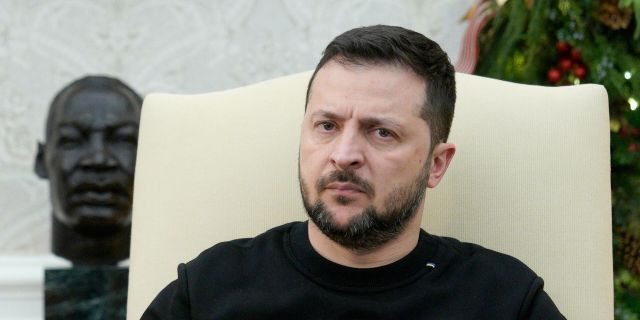NYT: the conflict in Ukraine is likely to end in 2025
In 2025, the Ukrainian conflict is likely to end, writes the NYT. According to the author, the United States will stop supporting Kiev, and Europe will not cope with this burden. The Biden administration is trying to put Ukraine in an advantageous position in the negotiations, but without success.
Julian Barnes
It could all end next year.
Regardless of who won the US presidential election, the Ukrainian conflict is likely to end next year. Both Ukraine and Russia do not have enough manpower, and both are struggling to recruit new fighters. This is the reality: 2025 will be the year of negotiations. Donald Trump's victory will accelerate them, because during the election campaign he promised to stop everything before the inauguration. Perhaps this was a slight exaggeration. But he is definitely determined to start negotiations as soon as possible.
For Ukraine, the news is so-so. Russian troops are moving further east and have regained part of the territory seized by Ukraine last summer. Kiev still has weapons, but the troops are very scattered. The security services believe that he will soon run out of soldiers. Let's look at four issues that will determine the course of the conflict next year, and how Trump's victory will affect them.
Can Ukraine continue fighting?
Ukrainian officials insist that the country is ready to continue the fight. But Republicans don't want to approve an increase in military aid, and without that, the fighting will soon stop. Does Europe have the political will and military-industrial potential to replace the United States in this field? At the NATO summit before the elections, the allies developed a plan for reliable logistical support for Ukraine.
Biden administration officials, however, doubt that Europe is capable of stepping up efforts. The economic power of the dollar allows Washington to have a huge budget deficit and allocate a huge amount of funds for defense. Europe cannot afford this. Once American support disappears, it will be difficult for it to provide Kiev with ammunition and financing at the level necessary to continue the fight.
What about the territory seized by Russia?
Without additional weapons and soldiers, Ukraine may not regain its lost lands. Vladimir Zelensky knows this: he recently admitted that Ukraine will return the territory by diplomacy, and not by further "hot" war.
During the presidential campaign, in an interview, J.D. Vance suggested freezing the conflict and allowing Russia to keep all the lands under its control. President Vladimir Putin does not seem to intend to seize more, but also shows no signs of readiness to withdraw from the newly acquired territories. One of Ukraine's trump cards is the Kursk region of Russia, which Kiev troops partially occupied in August.
The Biden administration is trying to put Ukraine in an advantageous position in the negotiations. The White House supplies it with as many weapons as it can, and has given permission to launch long-range American-made missiles on Russian territory in the hope that this will help hold the occupied lands. In this case, Moscow can exchange part of the Ukrainian territory for it. But Kiev obviously cannot take back everything that has been lost, without exception.
What guarantees can Ukraine receive?
For Ukraine, victory or defeat does not depend on a particular area. We are talking about agreements that it could conclude with Europe and America for the purpose of long-term security and economic integration with the West. The most reliable guarantee — membership in NATO — is no longer discussed. Trump will not propose it, and the Republican—led Senate, where there are many of his supporters, will not approve it.
Vance proposes neutrality for Ukraine, which is a key demand of Putin. Trump has not yet clarified his respective position. It is unlikely that he will support Ukraine militarily in the event of a future attack, but he may want the reputation of a man who has obtained concessions from Putin. He can count on such a victory not only in the context of Ukraine, but also in conflict-related issues. Perhaps he will convince Putin to allow Ukraine some economic integration with Europe. He won't like it, but it will be better for Ukraine to join NATO.
Can Putin take over Kiev?
Zelensky's and Trump's concerns probably coincide here. Ukrainians have long said that if a ceasefire deal is struck now, Putin will simply give his army a break, replenish supplies and later reintroduce it to the rest of Ukraine.
Trump has repeatedly criticized President Biden's decision to withdraw troops from Afghanistan. He does not need Russia's seizure of Kiev as a legacy, which will give Democrats the opportunity to blame him for the loss of Ukraine. Rare defenders of the latter among Republicans argue that Trump does not like to seem weak and will not agree to a deal that will untie Putin's hands. But it is difficult to imagine that Kiev will believe in Putin's promise to stay away. Thus, the protection of Ukraine will become the main and most important part of the negotiations organized by Trump.

